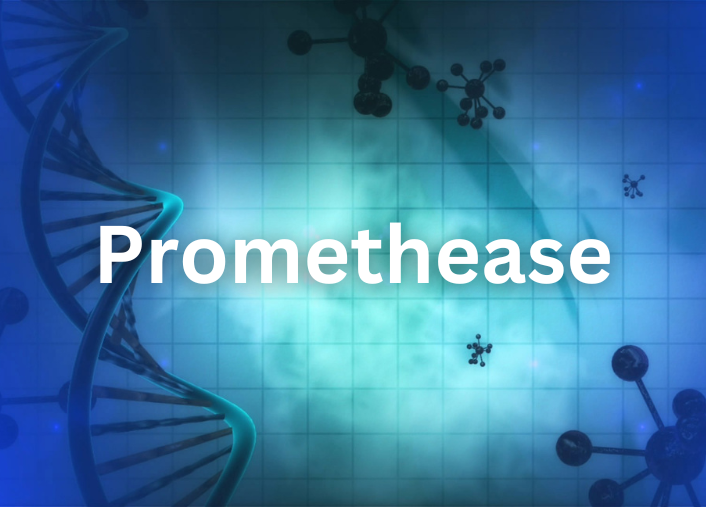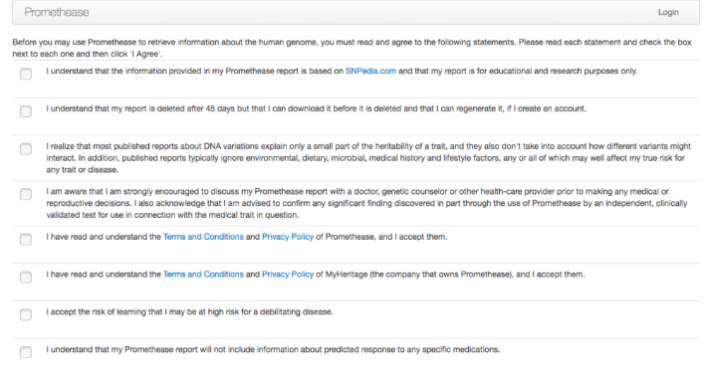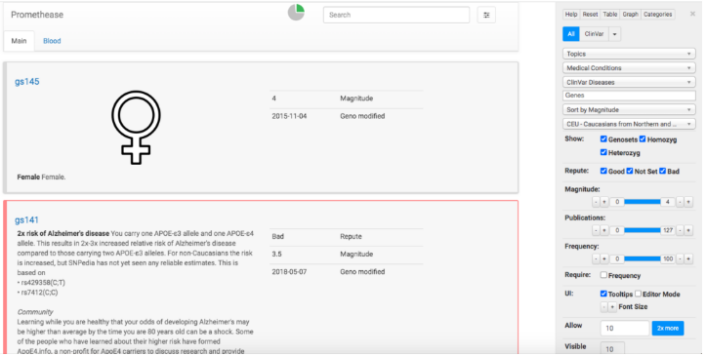
Promethease, now owned by MyHeritage, is a genetics literature retrieval system that builds a personal report based on your DNA data, primarily focused on health-related genetic variants.
The primary appeal of Promethease lies in its affordability and comprehensive reports, backed by SNPedia, a wiki database housing a vast amount of research findings related to single nucleotide polymorphisms (SNPs).

SNPedia is an online database that contains information about single nucleotide polymorphisms (SNPs), which are variations at a single position in DNA among individuals. It serves as a wiki, allowing users to contribute and edit content under the oversight of its founders. SNPedia links genetic data to medical and physiological information to help individuals understand how genetic variations may influence their health and traits.
The website utilizes data primarily from scientific studies and public databases, providing details on how specific SNPs might be associated with health conditions, traits, or responses to drugs. It’s a valuable resource for both researchers and individuals interested in personal genomics and precision medicine.
Getting started with Promethease is relatively straightforward. Once you access their website, they provide a list of terms and conditions you should accept before proceeding with the tool.

You can directly import your DNA raw data file from another company or upload it manually after paying a fee of USD 12.

Promethease accepts raw data from several providers, including 23andMe, AncestryDNA, and MyHeritage DNA.
Here are some terms you might encounter in a Promethease report:
These terms are used within Promethease reports to provide detailed insights into your genetic make-up, and how it might influence various health-related traits and conditions. Understanding these terms can help you better interpret the results of your genetic analysis.
It may take up to 24 hours for Promethease to generate the report, depending on the server load.
Upon receiving the email that the report is ready, you can navigate the website and immerse yourself in a wealth of information. The report has numerous sections on various conditions, traits, and medications.
Each genetic variant in the report is presented with a magnitude score, indicating the importance of that particular SNP variant.
Furthermore, it indicates whether the variant is good or bad and its frequency within the population.
One of the first impressions of the Promethease report is its sheer volume of data. It can feel overwhelming if you are new to genetics.

Promethease report is text-based with limited visuals, which can be challenging to read for the uninitiated.
The report also uses scientific language and jargon like SNP, allele, genotype, or rsID. If unfamiliar with these terms, you might frequently need to refer to external resources to understand the report fully.
Promethease pulls data from SNPedia. However, it is crucial to remember that interpreting genetic data, especially in the context of health, is complex.
The presence of a particular SNP allele might increase the risk of a condition, but it doesn’t guarantee you’ll get it. Many factors, including other genes and environment, come into play.
Promethease emphasizes that its report is not a diagnosis and that customers should discuss concerning findings with a healthcare professional.
Family Tree DNA (FTDNA) allows users to download their raw DNA data, which they can upload to a third-party tool like Promethease for additional analysis.
This raw data includes results from FTDNA’s Family Finder (autosomal DNA), Y-DNA, and mtDNA tests.
However, it’s important to note that Promethease is designed to interpret autosomal data related to health and traits.
While you can technically upload Y-DNA and mtDNA data to the site, the interpretations for these data are limited, as they are not the primary focus of the Promethease database.
It is also essential to check the terms and conditions and privacy policies of any third-party tools you consider using, as using such services can often have implications for your genetic data privacy.
For the most current and detailed instructions, please visit the respective websites of Family Tree DNA and Promethease.
Promethease claims not to share, sell, or utilize your genetic data after creating the report.
As of December 2019, after being acquired by MyHeritage, Promethease implemented a policy of deleting all DNA data files within 30 days of upload.
Accepts Data from Multiple Providers: Promethease accepts raw DNA data from many major DNA testing companies, making it a versatile choice for analysis.
LifeDNA has emerged as a prominent option for analyzing raw DNA data from 23andMe and many other sources, owing to a combination of unique offerings and a commitment to personalized wellness.
We offer a basic DNA data analysis package to kickstart your journey. Users with raw data from 23andMe, AncestryDNA, etc., can access close to 200 traits across interests such as Nutrition, Wellness, Vitamins and Supplements, Personality, Fitness, Sleep, Methylation, and Skincare.
Further, if you do not have raw DNA data, such as from 23andMe, LifeDNA provides that too. Start your personalized wellness journey with LifeDNA’s state-of-the-art DNA kits here.
Here is why many regard LifeDNA as the best option for making the most of your 23andMe, AncestryDNA, and other raw DNA data:
*Understanding your genetics can offer valuable insights into your well-being, but it is not deterministic. Your traits can be influenced by the complex interplay involving nature, lifestyle, family history, and others.
Our reports have not been evaluated by the Food and Drug Administration. The contents on our website and our reports are for informational purposes only, and are not intended to diagnose any medical condition, replace the advice of a healthcare professional, or provide any medical advice, diagnosis, or treatment. Consult with a healthcare professional before making any major lifestyle changes or if you have any other concerns about your results. The testimonials featured may have used more than one LifeDNA or LifeDNA vendors’ product or reports.


